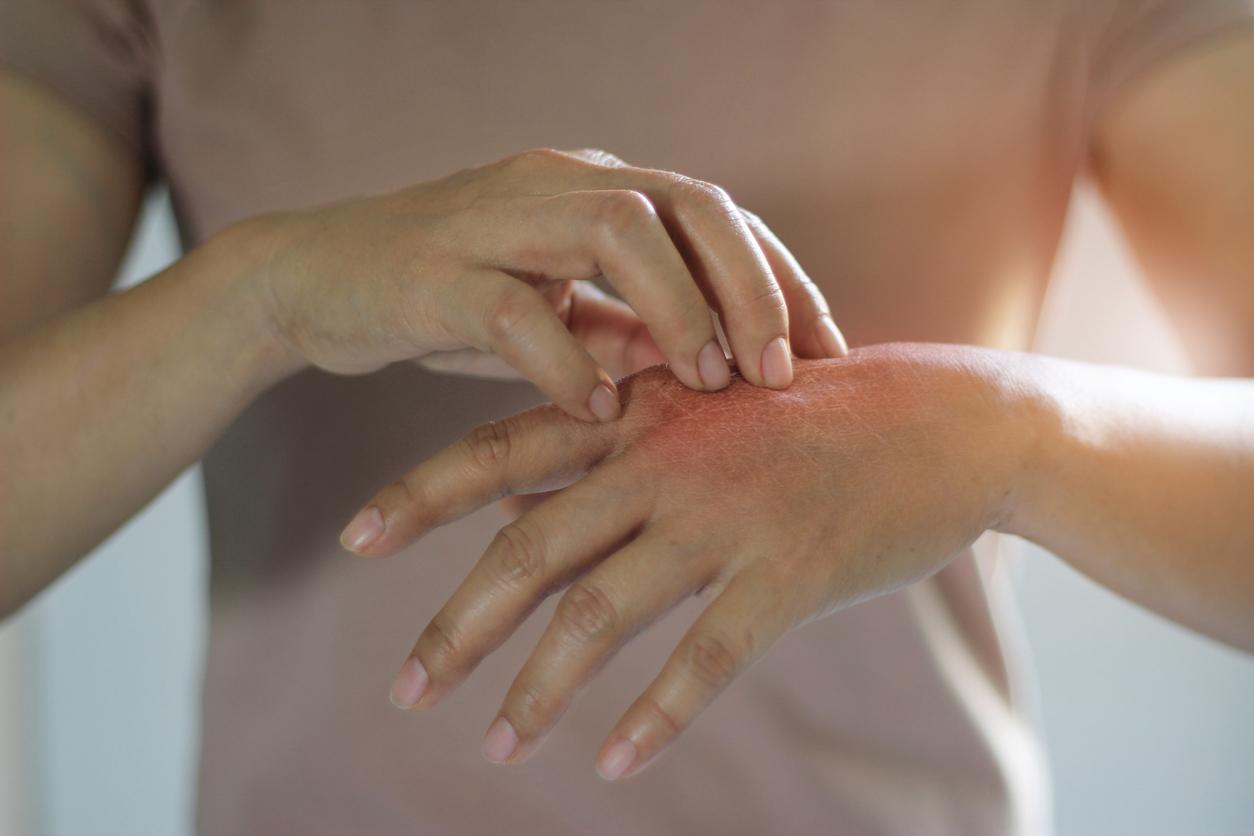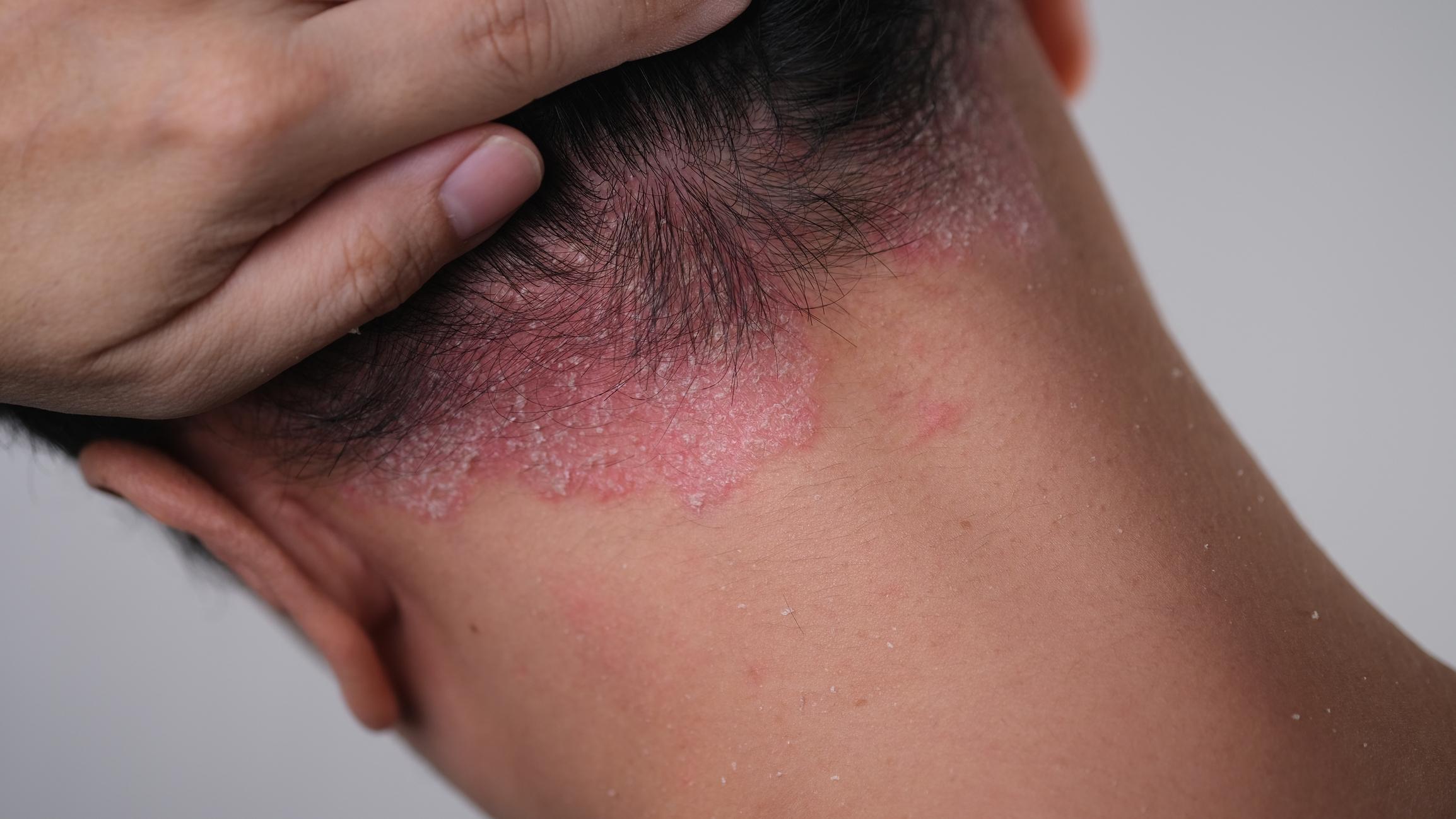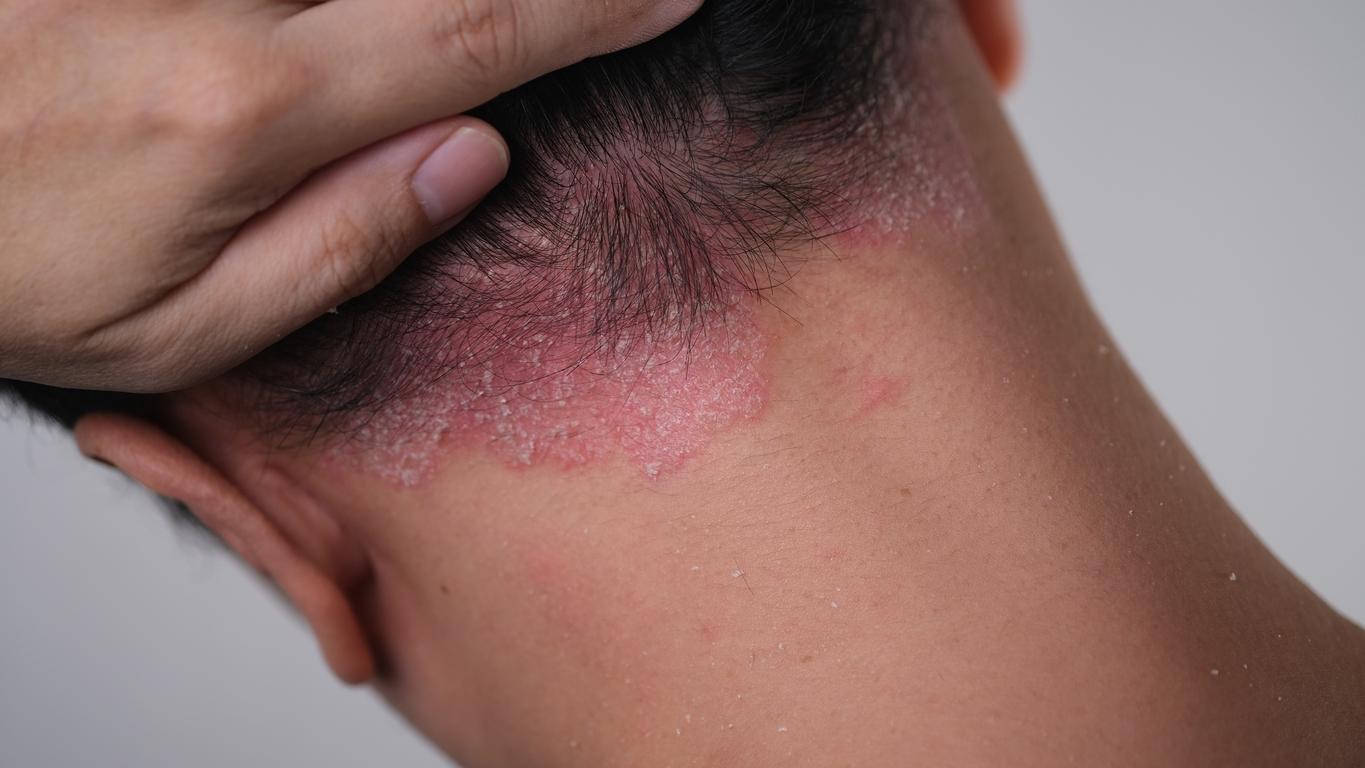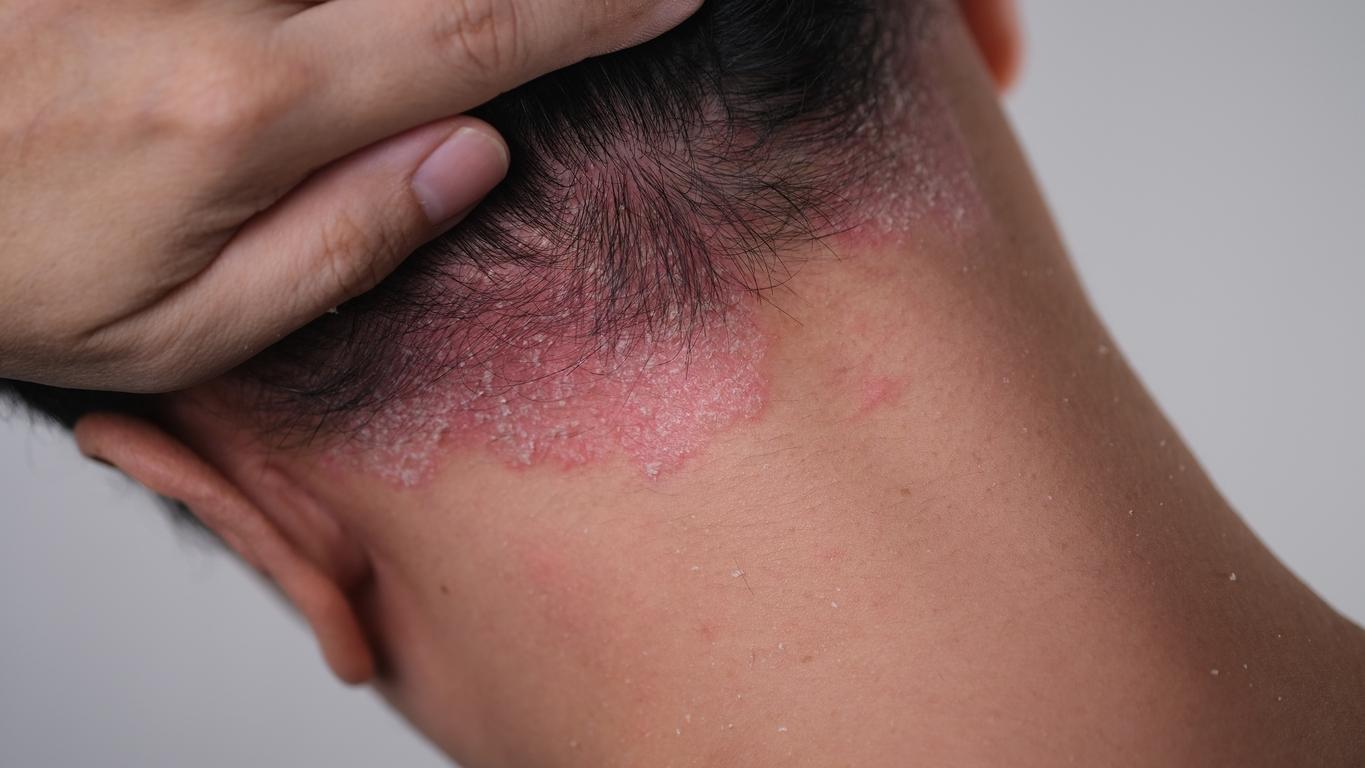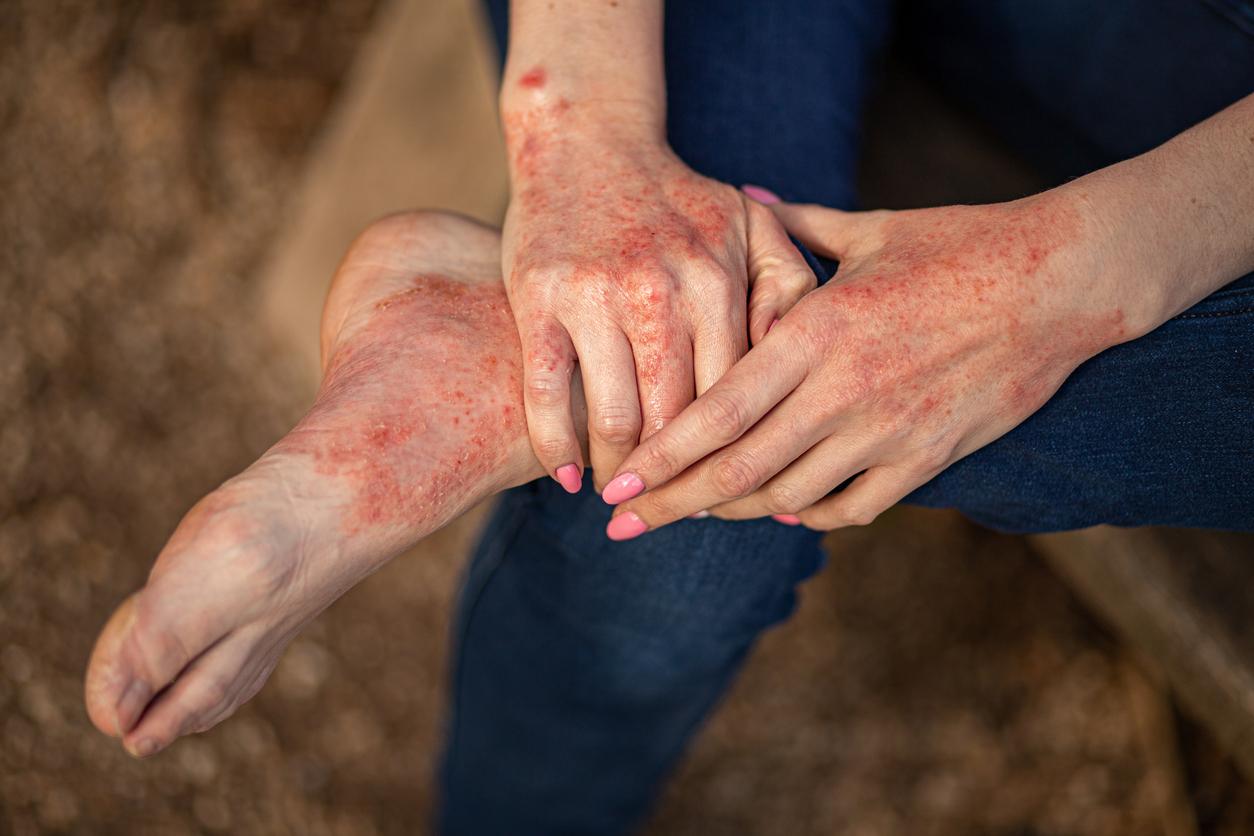Patients affected by psoriasis are twice as likely to suffer from gluten intolerance as people without this skin condition.
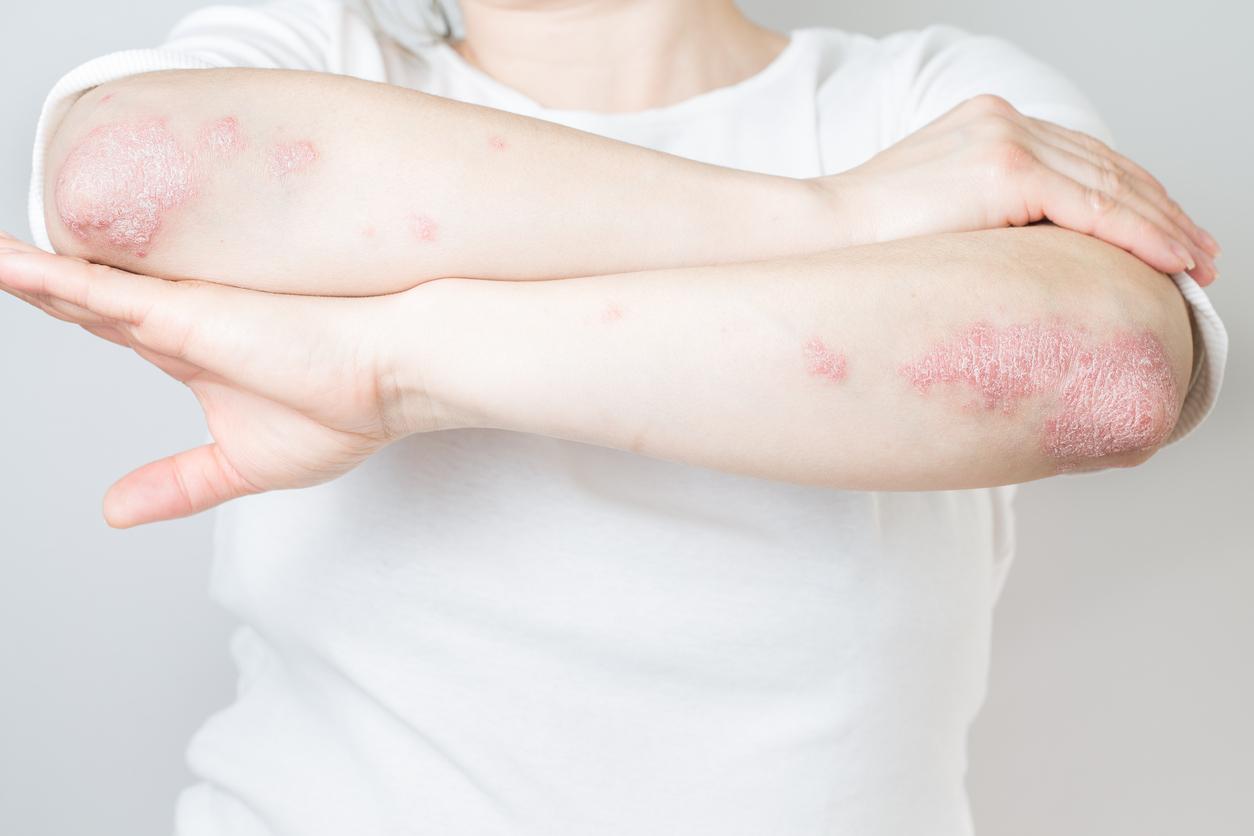
- By analyzing data from more than 300,000 adults, researchers found that people with psoriasis are twice as likely to have celiac disease.
- “There may be shared immunogenic mechanisms between the two,” the authors write.
- Psoriasis is a chronic inflammatory skin disease characterized by red patches covered with thick crusts. In France, it concerns 2 to 3% of the population.
Having psoriasis increases the risk of developing gluten intolerance, called celiac disease, by 50% compared to people without psoriasis, according to a research letter published online February 9 in the Journal of the American Academy of Dermatology.
Celiac disease is a chronic, autoimmune intestinal disease linked to the ingestion of gluten. It occurs in genetically predisposed people. During the absorption of foods containing gluten, the immune system of the persons concerned reacts to the presence of gliadin, a gluten protein, by producing various antibodies. Ultimately, this abnormal autoimmune reaction causes damage to the inner lining of the intestine, with, as a result, impaired digestion and poorer assimilation of many mineral nutrients and vitamins by the body.
“Shared immunogenic mechanisms” between psoriasis and celiac disease
Marina Z. Joel, from Johns Hopkins University School of Medicine in Baltimore, USA, and her colleagues examined the link between psoriasis and celiac disease by analyzing data from 316,166 adults participating in the research program “All of Us”. The researchers found that of the 6,476 patients with psoriasis, 1.65% had celiac disease compared to 0.49% of the 309,690 patients without psoriasis. After adjusting for age, gender, ethnicity, smoking status, autoimmune diseases related to psoriasis and celiac disease, and body mass index, psoriasis remained significantly associated with celiac disease.
“Although the pathophysiological mechanism behind the association between psoriasis and celiac disease is unclear, genome-wide studies have shown that several chromosome elements (loci) that increase susceptibility to psoriasis overlap with those of celiac disease. There may be shared immunogenic mechanisms between the two.”write the authors. “Further studies are needed to better understand the pathophysiological mechanisms linking psoriasis and celiac disease”they add.
Psoriasis, a generally mild disease that can be very disabling
As a reminder, psoriasis is a chronic inflammatory disease of the skin which is characterized by red patches covered with thick crusts (called “squames”). Associated with this are typical abnormalities of the scalp and nails, sometimes also joint pain or true psoriatic arthritis, which can lead to serious joint damage. The disease is generally benign but can have a very negative impact on the quality of life of people who are affected, especially when it becomes chronic and flare-ups are recurrent.
In France, psoriasis affects 2 to 3% of the population, according to Health Insurance. Generally, this pathology appears between the ages of 20 and 40. Currently, there is no cure for this disease. The solutions offered to patients only reduce symptoms and, ultimately, improve their quality of life.











